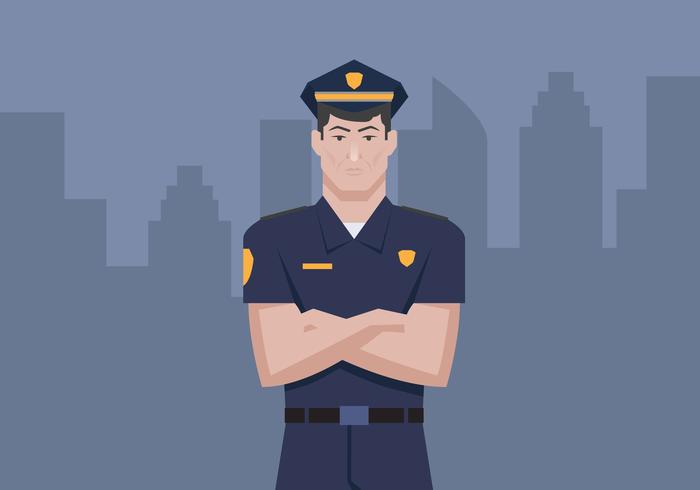Being a police officer is not the easiest job in the world, but those in service already know that. In spite of all that, there’s enough opportunity in Canada for police officers to think about positive career goals, improving their on-duty performance, and serving people better as upholders of the law.
Understanding Challenges: There is a Marked Deficit in the Canadian Police Force
A significant deficit has been reported officially in the Canadian police force recently, both in terms of available officers and qualified officers to take up leadership positions. It was only back in 2009 that the Canadian police saw such a deficit in their numbers, which is a cause for concern, given that the population has only increased significantly since then.
Once the population is taken into account, police presence per capita has never been so low in the country, ever since the beginning of the new millennium (2001). In spite of having a lower population in 2017, Canada had 69,025 working police officers in that year. By the end of 2018, the total had shrunk to just 68,562.
To put those numbers into a better perspective, the following stats from the report linked above must be mentioned.
- The national police presence per capita is at 185 officers per 100,000 civilians
- Prince Edward Island has a police presence of 1 officer per 709 civilians
- 11% of the existing police force consists of officers who should be able to retire
- If the older officers retire, there aren’t enough experienced/qualified officers to take over leadership positions
Understanding the Opportunities: It’s Not All Bad News
The deficit is real and a cause for concern, but there is an opportunity for existing and aspiring police officers here as well. A few brief highlights follow next, which should help in understanding how that’s applicable.
- A deficit in the force can be taxing, but it also indicates job opportunities for younger generations
- The pay boost is prominent, with the average salary of a Canadian officer rising in rapid succession
- A lack of leader figures indicate that the opportunity is there for present officers to grow in their career
- The present, average salary of police chiefs, commissioners and higher-ups is approaching the $100,000 mark
- The report also stated a huge growth in the number of available female police officers in 2018
Designed and taught by Canadian police officers themselves, Laurier’s online police school is offering a BA in Policing programs for experienced officers in the force. The education makes way for police officers to handle leadership positions in the force that need to be either filled or taken over from retirement age officers.
Higher education in policing and criminal justice is not just restricted to current law enforcement officers either; they can also help retired officers and Special Constables gain a boost in rank, pay, and career opportunities. Given the unlimited reach of the internet, online education is one of Canada’s biggest hopes to meet the current deficit in police chiefs, deputy chiefs, commissioners, inspectors, detectives, sergeant majors, and other higher ranks.
Duty: Becoming a Better Police Officer
Education, empathy, and understanding are all key attributes for growing as a police officer. The duties of the job are conflictive by default, which often puts police officers in precarious and controversial positions. This is precisely what makes advanced education and understanding of the specific scenarios so important for solving crimes, handling sensitive situations, staying safe on-duty, and protecting the law for everyone.
Keeping these factors in mind, a few proven and effective policing strategies, as explained by veteran officers, are as follows.
- Road safety beats speed: a rash driving officer is unhealthy for everyone on the road and the department’s image
- Unless the emergency is dire, never break a traffic rule
- Learn to use stealth when needed; sirens and flashing lights are not always ideal
- Approach a potentially confrontational situation with a main plan and a backup plan
- Always keep the precinct informed of your situation
- Never hesitate to call for backup; it’s better to be over prepared
- Stay in sync with your partner at all times
- Whether it’s a routine patrol or an emergency response situation, wear your body armor
- Always keep a friendly chat going; it may neutralize a hostile situation or at least provide you with a distraction
- Staying strong and in shape is not optional, as it could often be the difference between life and death
- Complete new training programs if and when available, to further augment your policing capabilities
- Reserve physical force only for dire situations and emergencies
Importance of Community Immersion
Community immersion is actually one of the most important reasons why Canada has not succumbed to the effects of having low police presence per capita outside the main cities. Civilian aids outnumber the sworn officers and they help greatly in keeping volatile areas under control. That being said, there are certainly more opportunities to improve on that still. The following pointers are crucial for effective community immersion programs in areas that still have not seen such initiatives flourish.
- Existing community policing models should be revised and reintroduced
- Finding and forming partnerships with local leaders and influencers is key
- Police officers should be made active parts of the local, community building & social activities
- There should be a channel of communication open during any verbal confrontation
- A clear understanding and situational awareness of the law, civilian rights, police rights, and their intelligent, practical interpretations is necessary
There is a lot of confusion today in regard to what the law should be and what it is, but as a law enforcement officer, one cannot be concerned with the former while on duty. There is now and always will be an immense need for smart interpretations and intelligent judgement calls while facing practical, dangerous scenarios, but officers cannot be held liable for upholding the law as it is. What they can be held liable for, however, is their conduct during any sensitive situation. Practicing caution is always advised, but the directives should be clear.






